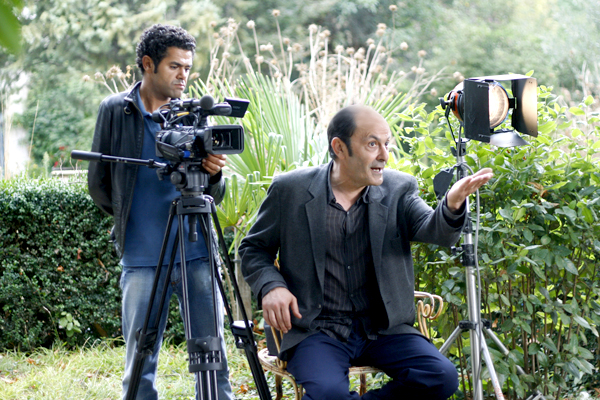|
Reviews of Recent Independent, Foreign, & Documentary Films in Theaters and DVD/Home Video

LET IT RAIN Having already proven herself a triple-threat as a writer-director-actress with The Taste of Others (2000) and Talk to Me (2004)—which had the prestigious opening-night slot at that year’s New York Film Festival—Agnès Jaoui returns with Let It Rain, another brittle comedy of manners that this time feels half-baked, its scenario only cursorily thought through. Jaoui plays Agathe Villanova, a feminist running for political office despite her lack of experience. (She represents the region on the ballot because, by law, candidates must be balanced by gender.) Returning to her southern French hometown with reluctant boyfriend in tow—who later leaves her—Agathe meets with her sister, Florence (Pascale Arbillot), to sort out their recently deceased mother’s affairs. There’s simmering resentment between the siblings: Agathe was favored as a child, something which Florence has always been sensitive. Then there’s Mimouna (Mimouna Hadji), Florence’s elderly housekeeper, who has worked for the Villanova family ever since she came from Algeria as a teenager. Mimouna’s son Karim (Jamel Debbouze), a clerk at a nearby inn, and his divorced friend Michel Ronsard (Jean-Pierre Bacri)—who is having an affair with the married Florence—are shooting a portrait of Agathe for their “successful women” documentary. Like Jaoui’s earlier films (all written with Bacri), Let It Rain is a character-driven comedy, alternately affectionate and satirical. It’s too bad, then, that Jaoui and Bacri have merely lined up mainly clichéd targets: a feminist author-turned-politician; novice (and inept) documentary filmmakers; an unhappy, cheating housewife; even the mythically perfect Côte d’Azur weather, which is nothing of the sort during a drizzly, dreary August. The forced humor is most vividly illustrated during a rain-soaked visit to a country farm that trades in several unfunny stereotypes. The entire sequence is set up unconvincingly. From the moment Karim and Michel drive Agathe to the remote countryside for a more “picturesque” interview location, it’s obvious something bad will happen. First, a herd of sheep interferes with the filming, then the entire day’s work is scuttled when the camera battery runs down and it turns out Michel brought the wrong replacement. Agathe, who needs to attend a speaking engagement that afternoon, wants to leave, but it turns out that Michel’s car has tipped over. As Michel, Bacri is gruffly funny, but he always plays the sullen crank in Jaoui’s movies so that, by now, it’s less a pungent characterization than a stereotype. A little desperately, Michel is given a teenage son with whom he has little connection. Their relationship feels like a tacked-on subplot, which ends prematurely (but mercifully) when the boy leaves to spend the week with his friend. He’s not missed by anyone after that. At its best, Let It Rain has its share of amusing asides about its characters. Michel and Karim’s first session interviewing Agathe humorously shows off their ineptitude, her reticence, and her boyfriend’s humiliation, reduced as he is to holding a plant out of the camera’s frame while she’s being interviewed. The boredom of Florence’s marriage is succinctly shown when, reading in bed, she places a small lamp on her head, looking ridiculously like a coal miner. And some lines have real bite, such as Michel’s comment about his sloppy handwriting: “My dad says I write like a doctor, but I heal no one.” Jaoui’s
tragicomic canvases have been compared with both Anton Chekhov and Woody
Allen. Such comparisons are premature, although Karim’s initial edit of
his documentary makes an ass out of Agathe, a direct lift from Crimes
and Misdemeanors, where Woody does the same to a pompous Alan Alda.
And Jaoui shows glimmers of more mature filmmaking, particularly in the
tentative relationship awkwardly developing between Karim and a female
co-worker at the inn. Jaoui’s assured handling of this subplot points to
a more thoughtful, probing look at relationships that’s missing from the
rest of the film.
Kevin Filipski
|

